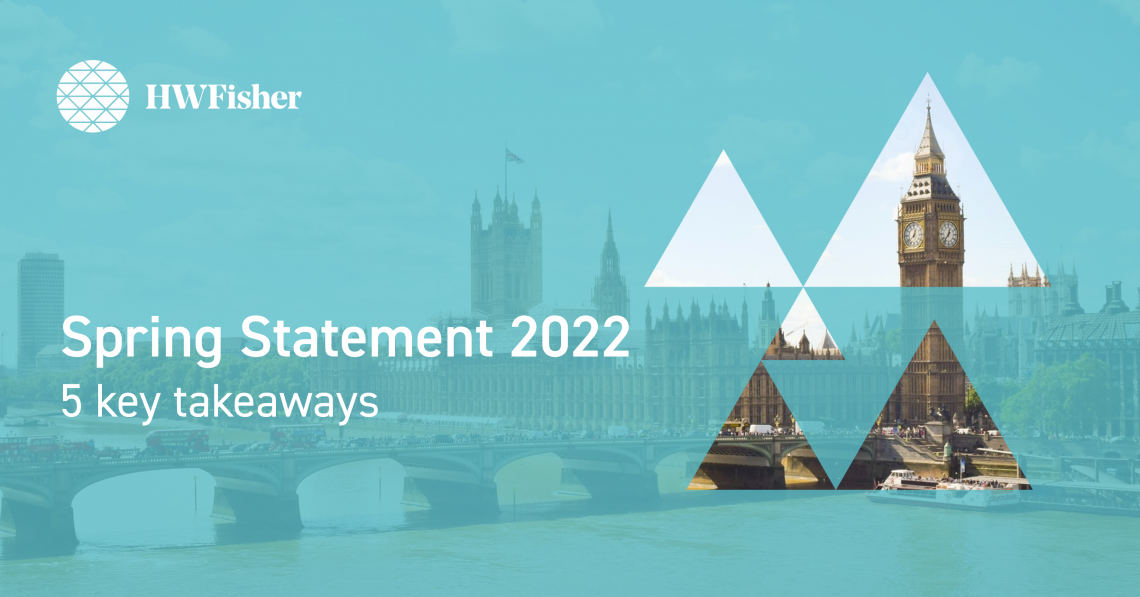
The Chancellor has announced his ‘mini-budget’ – here are our five key takeaways and initial thoughts so far.
Key takeaway: Basic rate of income tax will be cut from 20p to 19p in the pound before the end of this parliament
Tim Walford-Fitzgerald, Private Client Partner says:
“Dropping the one penny from the basic rate of income tax is a tactical and political move from the Chancellor. Assuming it comes into effect from April 2024, the first payslip you will see this in will arrive at the same time as election leaflets ahead of the next planned General Election in May 2024 – a coincidence, or a well-planned strategy?”
Key takeaway: the National Insurance threshold will be raised by £3,000 from July 2022
Tim adds:
“The decision to raise the threshold people earn before they pay National Insurance (NIC) is a long overdue simplification and will make it easier for the Chancellor to take the next step in aligning income tax and NIC.
“We see this as part of an opportunity to merge both income and NIC into one single tax further down the line. There are some barriers that still exist, but these are not insurmountable. Expect a further change on this when the Chancellor has the political courage to do so. It’s a psychological hurdle to overcome between one higher income tax rate and two separate taxes – even if they add up to the same total!”
Key takeaways:
Gerry Myton, Tax Partner says:
“It’s a sensible decision from the Chancellor to cut fuel duty – the biggest change in over two decades! It’s a quick and easy change to implement, and a reduction in duty at the pump will be a lifeline to those who heavily rely on their motorbikes, cars and vans every day for work. A 5p cut in the rate of duty should equate to 6p at the pumps for consumers. This is because duty is part of the fuel price, similar to a retailer’s margin and delivery/distribution costs to which VAT is added, so if a cost component reduces, the overall VAT amount reduces as well – making it cheaper for the everyday motorist.”
Key takeaways:
Key takeaways:
Despite a mix of announcements shared today, there has been little good news for businesses
Toby Ryland, corporate tax partner said:
“There was little to no cheer for businesses in the Spring Statement. There were small promises to increase R&D and capital investment expected later this year, however given the pressure to increase employee salaries immediately the financial strain on businesses remains acute. Any tax incentives that are introduced in the Autumn may well be cancelled out in short order by the rise in corporation tax from 19% to 25% in April 2023. All the focus is on income tax, but it’s a missed opportunity for businesses who face a looming increase to their tax bill.”
However, the Chancellor has said he will cut business rates for businesses in the hospitality, leisure and retail sectors by 50% next month.
Russell Nathan, head of hospitality said:
“The cost of living crisis will be as harmful to the British hospitality industry as Covid-19. Although during the pandemic people were stuck at home, there was still an appetite to go out and spend their money in local restaurants, cafes and bars. Despite positive steps in the right direction, we would urge the Chancellor to continue to consider extending VAT relief until at least the end of the year to protect the future of British hospitality.”
It can be difficult to calculate what the reality of these announcements means for individual circumstances and often a lot of the detail is missed during the Chancellor’s speech.
If you would like to have a conversation with one of our partners about how today’s Statement will impact you and your business, or individual circumstances please do get in touch directly.
We’d love to hear from you. To book an appointment or to find out more about our services: